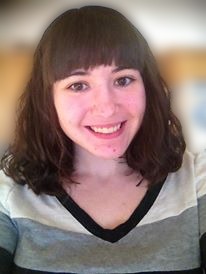In the spring of 2021, 44 PhD students from a range of academic disciplines at Penn participated virtually in Career Services’ PhD Career Exploration Fellowship (CEF) program, where they were matched with a host organization to learn about different careers beyond academia. Sarah Bond, a PhD candidate in Biochemistry and Molecular Biophysics, was placed as a Fellow with Merck – Quantitative Biosciences. Read about Sarah’s experience in the CEF below!
 Describe your experience working with your host:
Describe your experience working with your host:
I was hosted by Merck’s Quantitative Biosciences Division. My experience consisted of about 10 informational interviews that covered the necessary steps to pursue a research career in industry, the overall drug discovery process at Merck, and the Quantitative Biosciences role in supporting projects in various therapeutics areas in early drug development. I was able to speak with scientist in various functional groups and positions, affording mean in depth exploration of their day to day responsibilities and tasks, with particular attention to how biochemistry, which my degree will be in, is applied in the Merck pipeline. My host was very attentive is making the experience meet my needs and interests, and was extremely well matched to inform me on career trajectories beyond academia that are of interest to me.
What did you learn from this opportunity (about yourself, about career fields, the job search, etc.)?
The most important thing I learned for my career trajectory is that while, as I expected, a postdoctoral fellowship is the next step for me, choosing one in either academia or industry does not close the door to future positions in the other. I also learned a lot about what is similar and distinct when it comes to working as a researcher at a big pharmaceutical company, as prepared to academia, which was one of my main goals.
How does your CEF experience benefit your future career plans?
It was an excellent vehicle for networking, improving my general skills in that area, connecting me to potential job opportunities, and expanding my network of scientists with which I can connect to for technical expertise when necessary for my research, as well as career advice.
What was the most valuable part of your CEF experience?
The most variable part of CEF for me was the professional connections it facilitated. Particularly in the past-year with the lack of networking opportunities, like conferences, due to COVID, these connections gave me a lot more confidence to go into the job search as I approach graduation.
Top reason PhD students should apply to the CEF:
CEF is a great way to break into learning about careers outside academia. Even for students who enjoy academic research, I think the program helps to expand awareness of the available opportunities for PhD students so that they can make the most informed decision possible on a career path after graduation.




